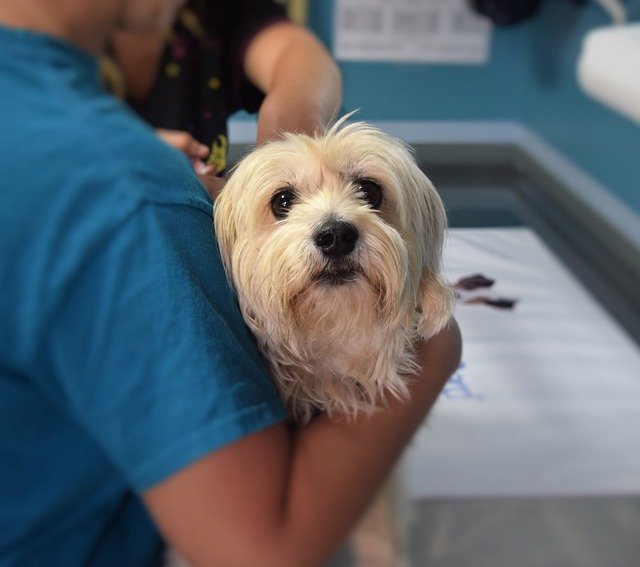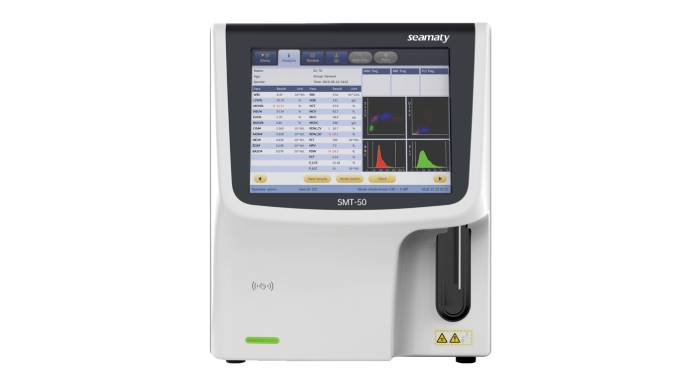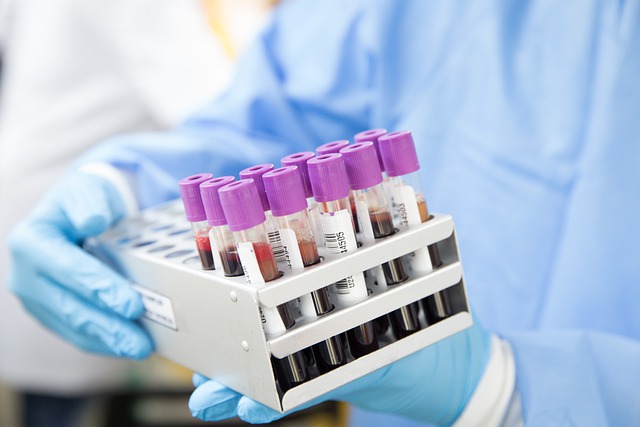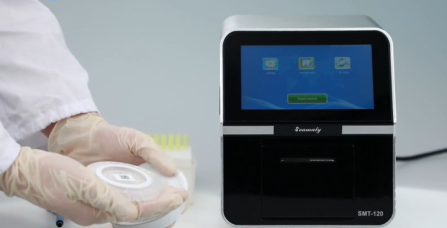release time:2021-12-16 16:40:34

Seamaty's vet chemistry analyzer SMT-120VP can quickly detect your pet's physical condition. For example, our comprehensive plus, health check and diabetes test parameters are a good way to check the health of your pet.

2022-09-29
A CBC test machine is a type of medical equipment that is used to measure the levels of red blood cells, white blood cells, and platelets in a person's blood. This information is important in order to diagnose and treat various medical conditions.

2022-05-25
According to statistics, global in vitro diagnostics is growing at a rate of 4.4% to 5.7% per year. The in vitro diagnostics market is predicted to exceed $87 billion by 2024.

2021-09-02
Biochemistry is able to test total cholesterol (CHO), triglyceride (TG), high-density lipoprotein cholesterol (HDL-C), low-density lipoprotein cholesterol (LDL-C) and other items related to blood lipids. The biochemistry analyzer enables an all-round understanding of blood lipid levels with accuracy and credibility.